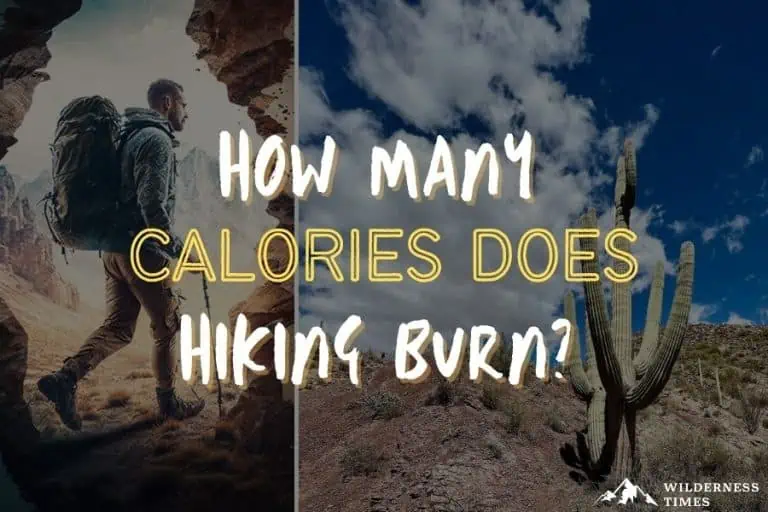Have you ever wondered how many calories does hiking burn?
The short answer is that, on average, hiking burns about 300 to 600 calories per hour during a hike.
But the longer answer is that these numbers can vary due to the elements and conditions often involved.
For example, if the terrain of the hike is rugged, more calories can be burned each hour.
If you wear certain kinds of clothing with different weights, there is a difference in calorie burn amounts.
So you shouldn’t hang on to “average” numbers too hard, since there are a lot of variables at play.
But we’ll do our best to give you an accurate estimate of potential calories burned on a given hike. Read on!
Table of Contents
ToggleHow Many Calories Does Hiking Burn?
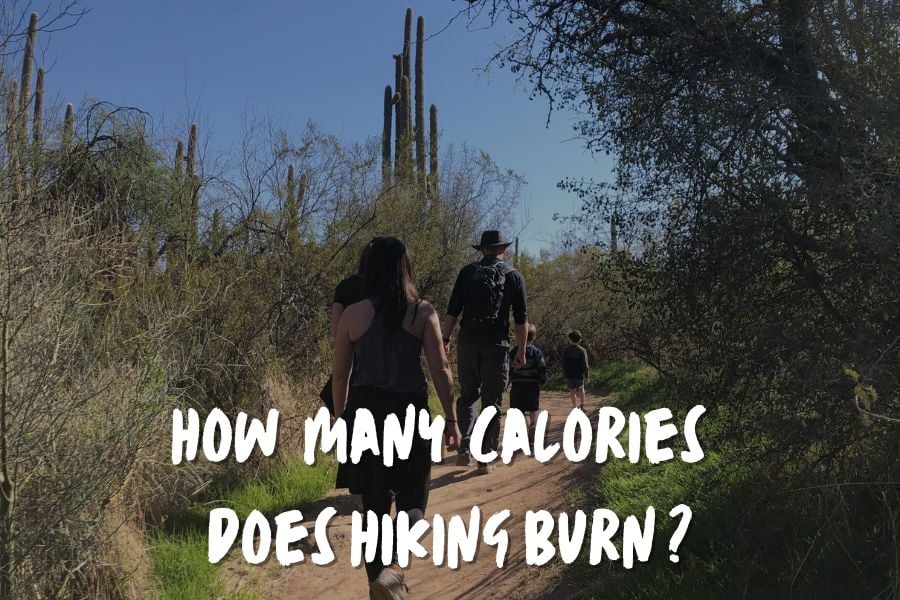
As we said before, how many calories you burn on a hike has both a short answer and a long answer.
The short answer is that, on average, hiking burns about 300 to 600 calories per hour during a hike.
But the longer answer is that these numbers can vary due to the elements and conditions often involved.
Here is a very, very, rough estimate for calories burned on hikes of varrying difficulty, but this can vary widely based on individual factors such as metabolism, fitness level, and hiking speed:
HIKER'S WEIGHT | TRAIL DIFFICULTY | CALORIES BURNED PER HOUR |
120 LBS (54 KG) | EASY | 290-354 |
120 LBS (54 KG) | MODERATE | 354-413 |
120 LBS (54 KG) | STRENUOUS | 413-531 |
150 LBS (68 KG) | EASY | 363-444 |
150 LBS (68 KG) | MODERATE | 444-518 |
150 LBS (68 KG) | STRENUOUS | 518-667 |
180 LBS (82 KG) | EASY | 435-533 |
180 LBS (82 KG) | MODERATE | 533-620 |
180 LBS (82 KG) | STRENUOUS | 620-800 |
210 LBS (95KG) | EASY | 508-622 |
210 LBS (95KG) | MODERATE | 622-723 |
210 LBS (95KG) | STRENUOUS | 723-934 |
For example, if the terrain of the hike is rugged, more calories can be burned each hour.
If you wear certain kinds of clothing with different weights, there is a difference in calorie burn amounts.
So you shouldn’t hang on to “average” numbers too hard, since there are a lot of variables at play.
You should take in all the variables and settle on a loose estimate.
This will help you with your fitness goals. But it also helps you know when to take in more fuel to reduce fatigue and prevent injury.
I know I typically burn more than 400 calories an hour because of the types of hiking trails and terrain I generally choose to travel on.
It would be much different if I did an easy hike in a park.
Factors that affect the number of calories hiking burns
As I said, many factors come into play to determine how many calories you burn during your hiking trip.
Different factors will typically decrease or increase the number of calories you burn.
These factors are often outside what most people consider an average hiking trip.
Bodyweight
Bodyweight does play a role in how many calories hiking can burn. If you’re lighter, you’ll burn fewer calories each time you hike.
If you’re heavier, you should expect to burn more calories. This is why heavier people often tire and wear out easily during fitness routines.
It’s because they’re burning way more energy than smaller people.
It is said that a 160-pound person will typically burn around 430 to 440 calories an hour.
Like me, those who are 200 pounds or over will typically burn up to 550+ calories an hour. More weight will always require more energy to be used.
Body Composition
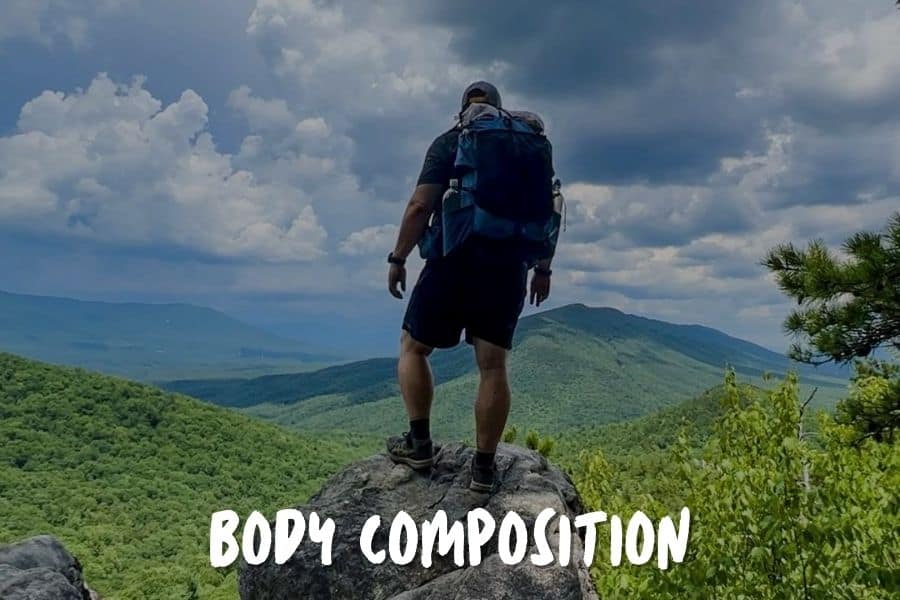
Body composition does play a role in how many calories hiking burns.
The better bone density and healthy weight distribution your body has will help you burn calories without losing too much energy.
But if you have more body fat and poorer density, you’ll get tired once you start burning calories, and it’ll be harder to continue without rest.
Speed
Speed plays a role in the number of calories burned while hiking. On average, you’ll burn about 300 calories an hour while hiking 3 miles per hour.
If you can increase your hiking speed to 4 miles per hour instead, you’ll burn around 400 calories an hour.
Adding an extra mile per hour to your hiking speed will often add around 100 extra calories to burn an hour in most hiking circumstances.
Terrain
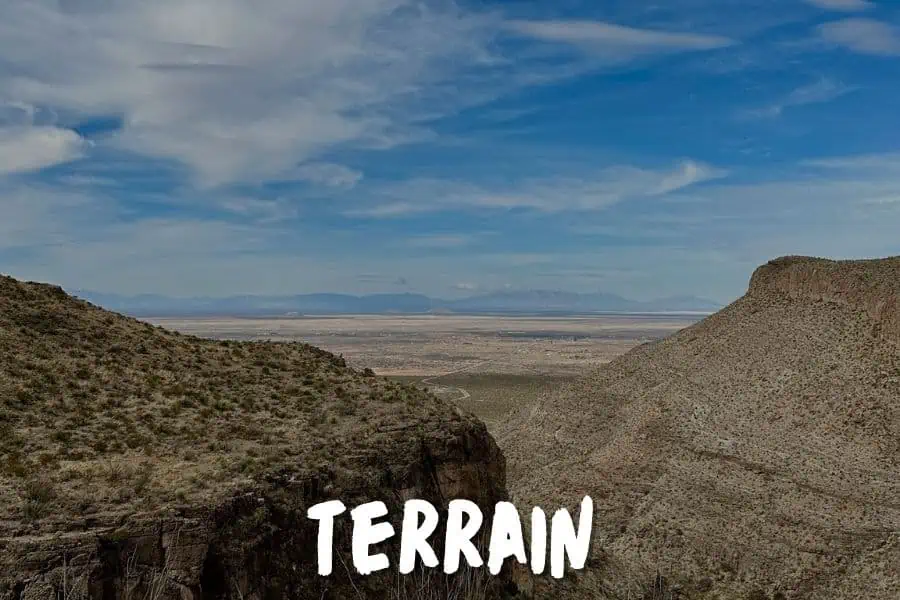
The terrain and difficulty of your hiking trail play a big role in how many calories you burn.
An easier trail with little to no fitness requirements will mean you’ll burn fewer calories even if you try to increase your speed.
When you start to choose routes that are hillier, steeper, and more moderately rugged in difficulty rating, the number of calories burned per hour can significantly increase.
Pack and Gear Weight
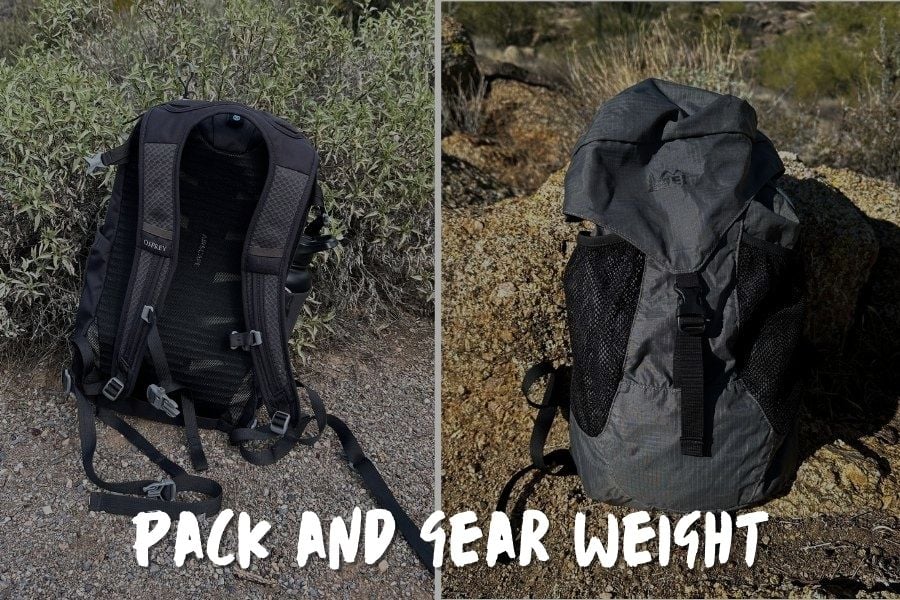
Pack and gear weight also affect how many calories you burn. A heavier pack with heavier gear means you’ll have more weight to manage.
This will make your hiking conditions more strenuous. It can help you burn more calories.
But it also might prevent you from burning more because it could slow you down and shorten your hike due to energy loss.
Your choice of clothing and footwear could also play a role.
Heavier clothing that flaps in the wind versus thin skintight clothing can create drag and weight that could slow you down.
Sometimes lighter is better when trying to achieve higher fitness levels during your hike.
Fitness Level
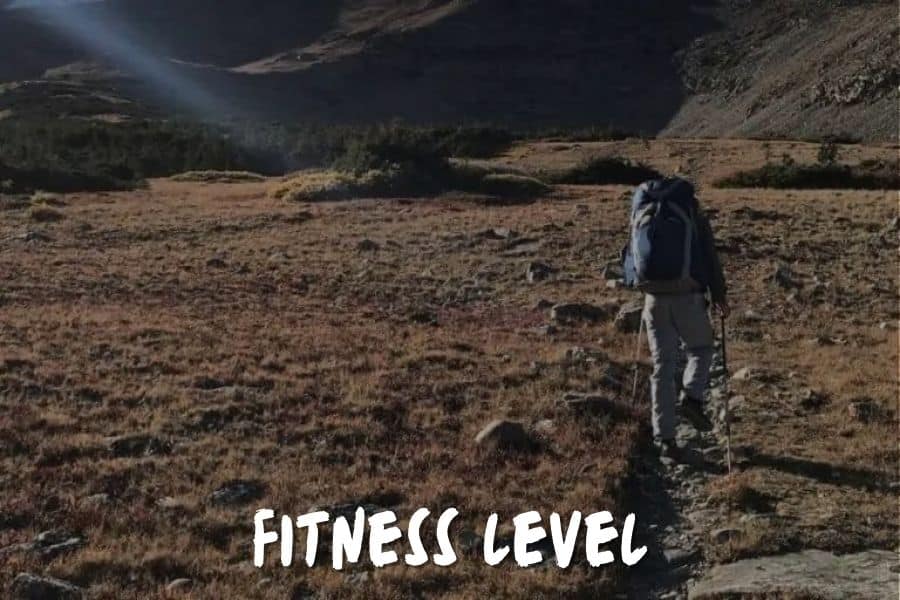
With all the elements in mind, your fitness level also plays a role.
If you have a strong fitness level, you must bring heavier items and still manage to burn the right number of calories.
If your fitness level is weak, you will lose more energy and get tired easily if you take on too much during your hike.
It’s understandable to start hiking with poor fitness, but the goal should always be to increase your fitness level while doing this wonderful healthy routine.
Also Read: How To Train For Hiking – The Best Tips For Getting In Shape
Why Is It Important to Know How Many Calories You Burn While Hiking?
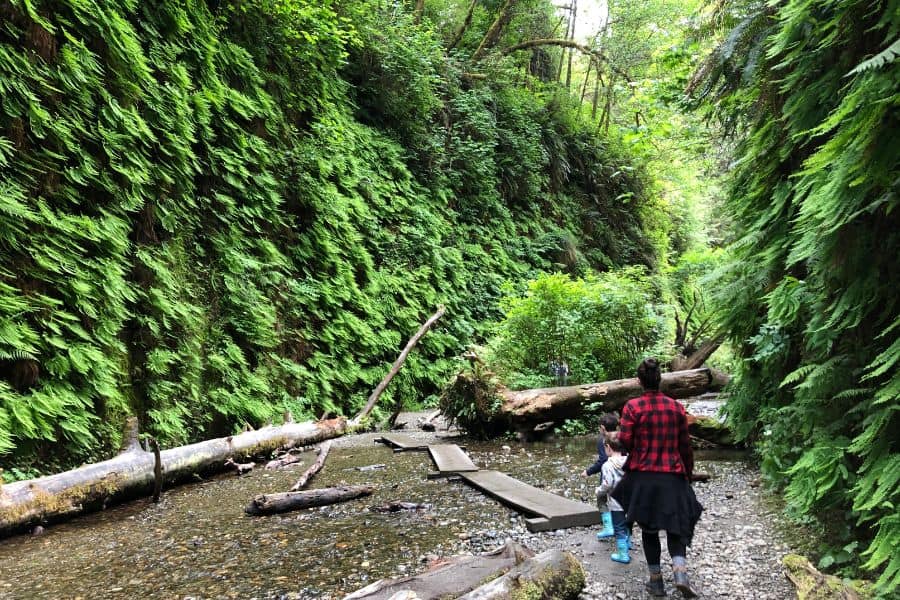
Many health factors and risks are associated with the poor management of calories.
Poor management can result in unwanted health risks such as cancer, diabetes, heart disease, and obesity.
These conditions are already major problems throughout the world. Fitness and healthy living are difficult by all means.
It’s easier to get fast food and stay home than cook a healthy meal and go to the gym.
But these factors will play key roles in your health and lifespan in the future.
Knowing how many calories we burn while hiking will help us manage our calories better.
Hiking is a kind of exercise that is fun and hardly noticeable as a form of fitness. That’s because we’re too busy seeing amazing sights of nature and being in awe.
But since hiking is exercise, it creates a wonderful opportunity for us to track better and manage our calorie burn rate.
And when it comes to hiking, you don’t just want to lose calories. Taking in calories is also important.
I’m very tall, and because of that, I weigh a lot more than most, and I sweat a lot when I hike.
As I sweat, I need to refuel myself with more carbs and calories to manage my energy levels and help turn my body fat into muscle.
Understanding calories helps us to make hiking a healthy activity.
Why Do You Burn so Many Calories Hiking?
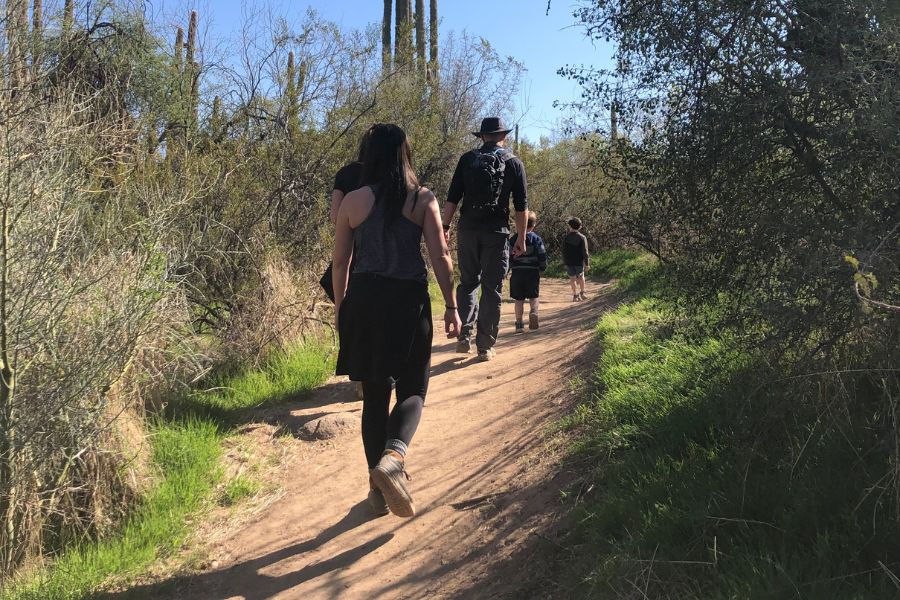
We typically burn two times the number of calories hiking versus walking.
When you compare hiking to cycling, you’ll typically burn more calories during the more difficult terrain and elevation levels during your bike ride versus hiking.
However, you tend to burn more calories hiking than you would be doing easy cycling.
Hiking is a great way to burn calories quickly without doing too much fitness work. Or at least you don’t notice you’re doing much fitness work.
We’re generally on uneven terrain and different elevated levels when we hike. We go up. We go down. We go side to side. We take switchbacks.
We have to step over things and crawl under other things. We do a lot of different body movements and activities that allow us to burn more calories.
When walking, you typically do one type of movement with one speed on easy terrain. You won’t burn many calories doing that.
Basal Metabolic Rate
Basal Metabolic Rate or BMR is the number of calories you burn as your body does routine life-sustaining functions.
These routine functions are as simple as your heart beating and breathing.
Your BMR is influenced by many elements, including your age, weight, gender, fitness level, eating habits, and even your environmental exposure.
BMR helps you determine how many calories your body needs to maintain its basic life-sustaining functions.
This is why it’s important to know that not all calories are bad calories. You do need them to survive, but too many of them can hinder your ability to survive.
Active Calories
Calories that you burn through fitness and exercise are known as Active Calories.
In general, burning 400 to 500 active calories a day for five days a week is ideal. You would do this through exercise and fitness routines.
During your hiking routine, you can burn that amount in one to two hours.
If you can hike five days a week and a few hours at a time, you will succeed at burning the correct number of active calories per week.
Most people don’t burn this amount. This is due to having a busy life. Even if you can’t burn that many a day, doing so on days you can is still just as important.
Benefits of Hiking
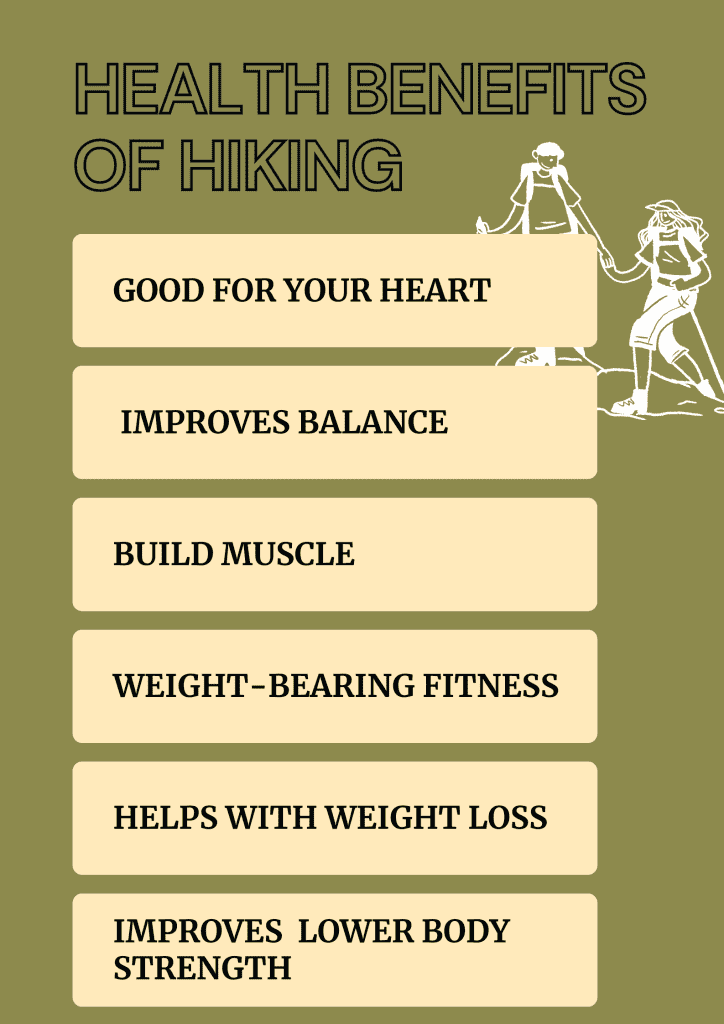
There are a lot of benefits of hiking. Some of the hiking benefits gear toward your physical health, while others gear toward your mental health.
Hiking does many benefits for the health of your vital organs and apparatuses. Hiking is good for your heart.
It also improves your stability and balance, and you can walk better.
Hiking can promote a healthy lifestyle that prevents unhealthy problems like heart disease and cancer later.
Hiking also does massive benefits for your fitness level. Hiking will help you build muscle. It will increase your bone density.
It strengthens and increases your ability to do more strenuous fitness activities.
Hiking will also help you lose weight and shape your body to a healthy fit.
Hiking works on your mind and mental health, too. Hiking can help curb depression and anxiety. It can help you be happy and meditate more.
Hiking gives you a better way to detect and sense your surroundings. Hiking is a great way to reduce stress.
There are way more benefits to hiking than you might think.
Frequently Asked Questions
Look at some commonly asked questions and answers about hiking and burning calories.
Is hiking a good way to lose weight?
Hiking is a great way to lose weight. The more calories you lose during a fitness activity, like hiking, the more chance you have to lose weight.
The trick, however, is that you have to lose more calories than you take in.
You’ll gain weight if you lose 400 calories in a day but eat enough to take in 600 calories.
You need to lose more than you take in, which needs to be done through a fitness activity.
How many calories does a 4-hour hike burn?
On average, we burn 300 to 600 calories in an hour while hiking, it’s safe to say that you’ll be able to lose up to 2,400 calories after hiking for 4 hours.
However, many factors play into these numbers, including your body weight, hiking speed, pack weight, and terrain.
How many calories do you burn hiking with a backpack?
Since weight plays a factor, you will typically burn more calories wearing a hiking backpack. The more weight you add, the more calories you can burn.
However, your fitness level and difficulty ability play a role in this determination.
If you wear a heavy backpack and it slows you down, you may lose fewer calories per hour because your speed is lower.
A heavier backpack could also make you hike fewer miles because of the weight. That, too, will lower the number of calories you burn.
If you don’t wear a heavy backpack, you might be able to hike longer and faster, allowing you to burn more calories.
Does hiking burn more calories than running?
You will burn double the number of calories running versus hiking. If you burn 400 calories an hour hiking, you can expect to burn 800 calories an hour while running.
Running is a harder-impact fitness activity. You’re actively increasing the speed that your body is used to moving.
You increase your feet, legs, arms, heartbeat, and breathing above normal. The workout is a lot bigger and more strenuous.
But hiking does double the number of calories burned versus walking. Hiking is that comfortable fitness routine that is in between walking and running.
Of course, you can run while you hike, known as trail running, and burn even more calories.
Is hiking a good workout?
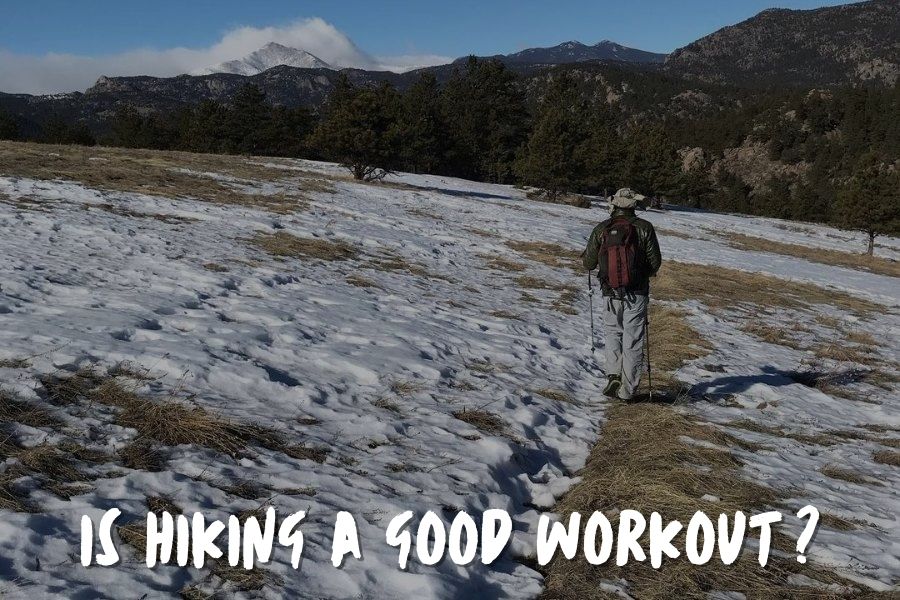
Hiking is a fantastic workout. It’s so great because you don’t even realize you’re hiking. You can start small and increase as you get stronger.
Eventually, you can do rugged hikes that offer so many health benefits and not even realize that you’re performing exercise in the process.
Working out in the gym is hard because we know we’re working out. But when hiking, we’re too busy noticing nature and awesome things to realize we’re exercising.
Conclusion
Hiking is a great way to burn calories. It’s a great way to exercise and stay in great shape.
Hiking and biking are what I chose to start being healthy finally.
I will say it repeatedly: hiking and biking saved my life. It made me choose healthier lifestyles.
It made me love life more than I’ve ever loved life. Hiking did that for me, and it can do that for you, too.
Next Up: Why Do People Like Hiking? (10 Reasons People Love Hiking)


